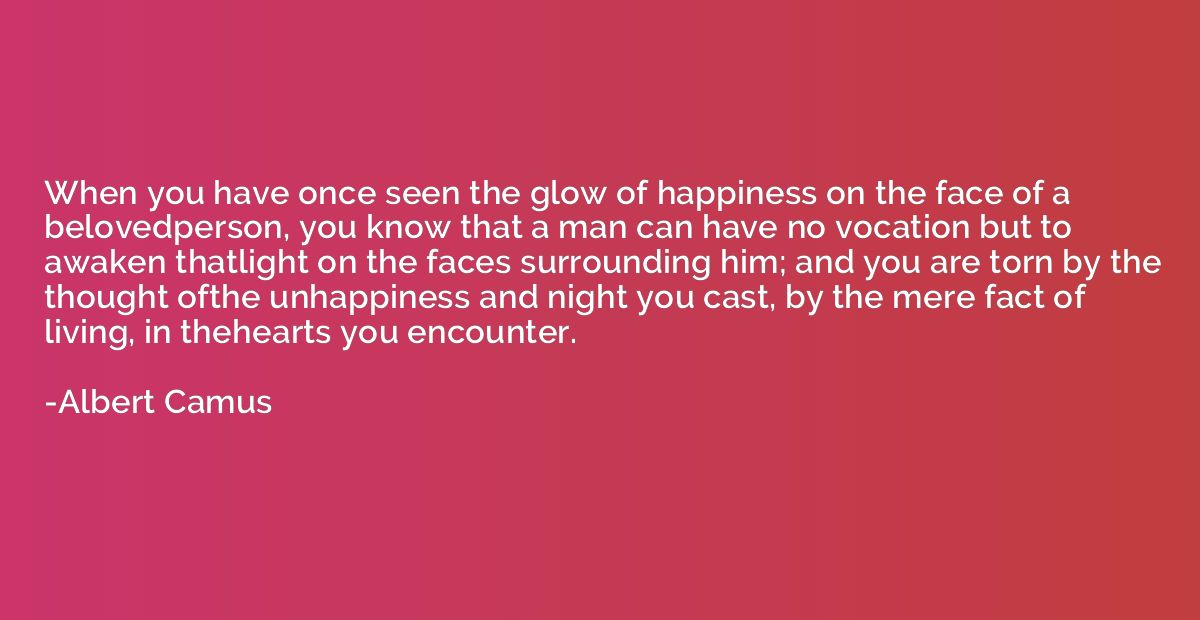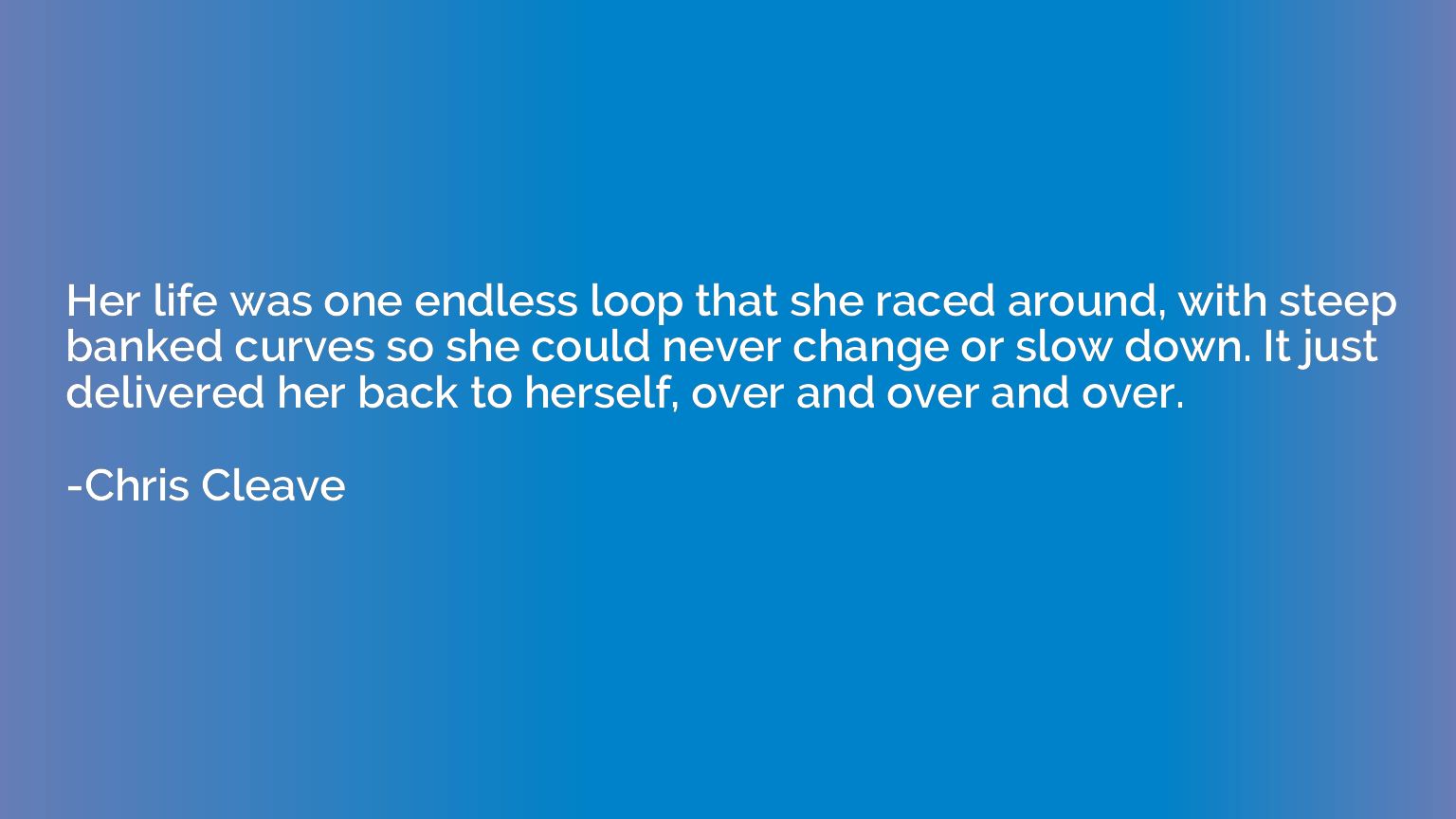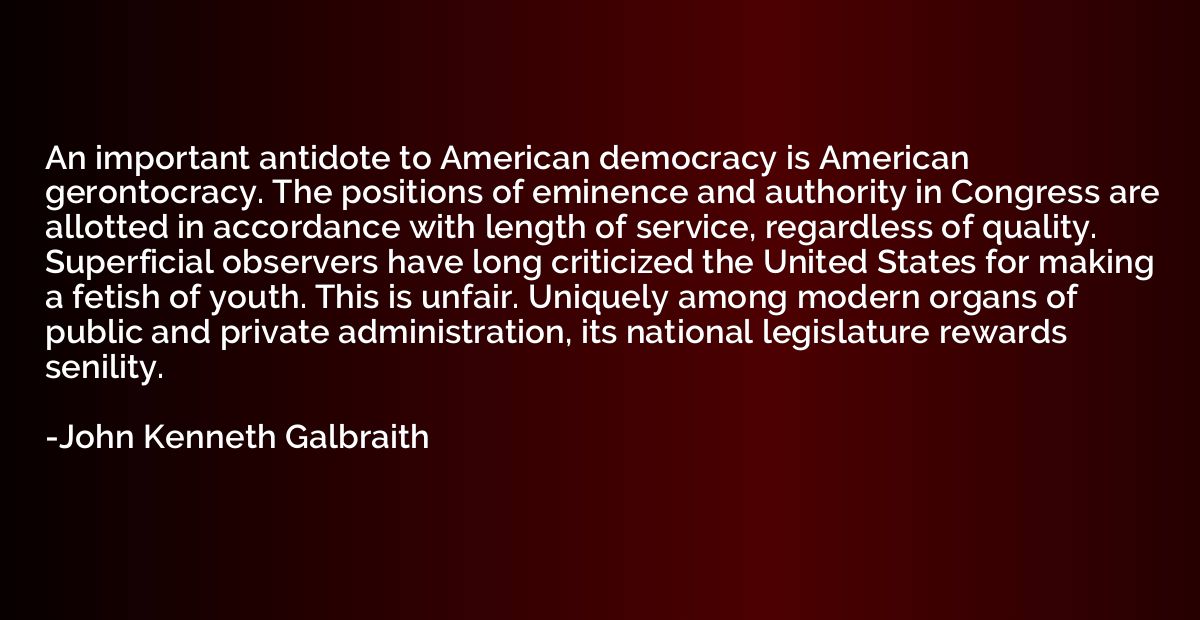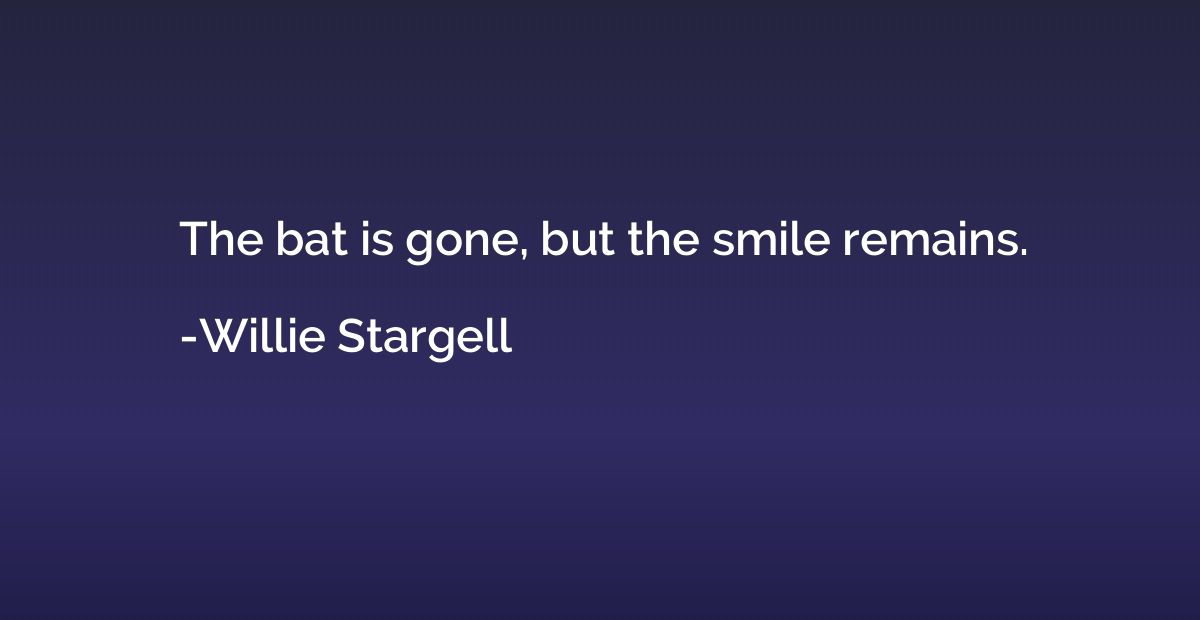Quote by Karl Menninger, The Crime of Pun
Clinical experience has indicated that where a child has been exposed early in his live to episodes of physical violence, whether he himself is the victim or ... the witness, he will often later demonstrate similar outbursts of uncontrollable rage and violence of his own. Aggression becomes an easy outlet through which the child's frustrations and tensions flow, not just because of a simple matter of learning that can be just as simply unlearned, not just because he is imitating a bad behavior model and can be taught to imitate something more constructive, but because these traumatic experiences have overwhelmed him. His own emotional development is too immature to withstand the crippling inner effects of outer violence. Something happens to the child's character, to his sense of reality, to the development of his controls against impulses that may not later be changed easily but which may lead to reactions that in turn provoke more reactions - one or more of which may be criminal. Then society reacts against him for what he did, but more for what all of us have done - unpleasantly - to one another. Upon him is laid the iniquity of us all...
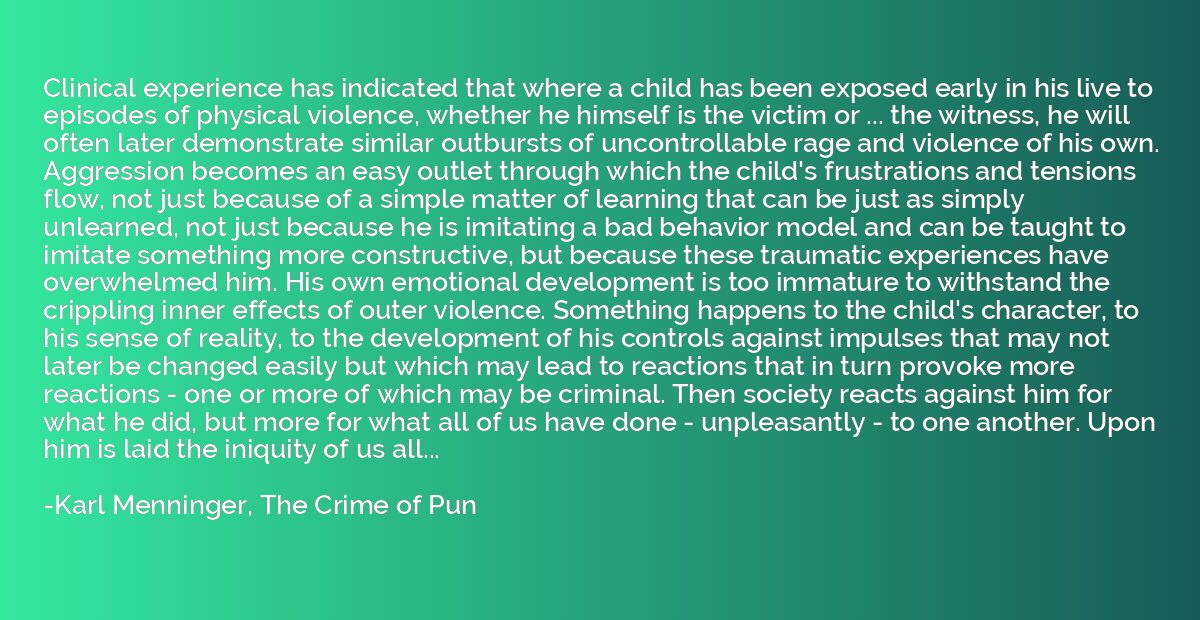
Summary
This quote emphasizes the damaging impact of early exposure to physical violence on a child's development. It suggests that when a child is exposed to violence, either as a victim or observer, they are more likely to display similar aggressive tendencies later in life. The quote acknowledges that aggression serves as an easy outlet for the child's frustrations, which cannot simply be unlearned or solved by replacing it with more positive behaviors. These traumatic experiences overwhelm the child's emotional development, shaping their character and their ability to control impulses. The quote posits that these effects may lead to criminal actions, with society reacting not just to the individual but to the collective impact of violence on all of us.




